detail profile c5 bdelimir c5 bdilnik
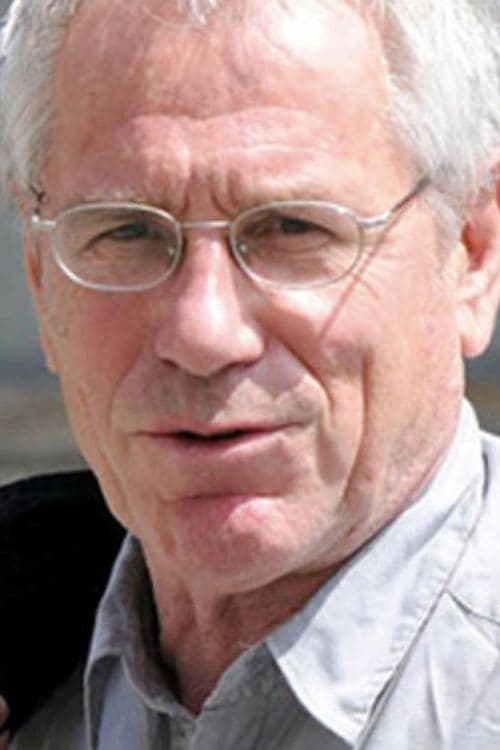
Riwayat Hidup
From Wikipedia, the free encyclopedia
Želimir Žilnik is a Serbian film director and one of the major figures of the Yugoslav Black Wave.
He is noted for his socially engaging style and criticism of censorship that was commonplace during the Yugoslav communist era.
Subsequently, following the abolition of communist one-party system, he was an outspoken critic of Slobodan Milošević-led regime in Serbia.
Description above from the Wikipedia article Želimir Žilnik, licensed under CC-BY-SA, full list of contributors on Wikipedia.
Info Pribadi
Peran Yang Di Mainkan Želimir Žilnik
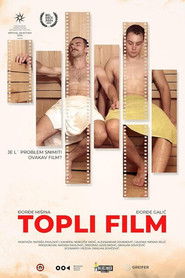 Two young actors are exploring the...
Two young actors are exploring the...Warm Film 2024
Two young actors are exploring the topic of representation of LGBTI people through the history of Yugoslav cinema and social circumstances that have resulted in different treatment of these characters.
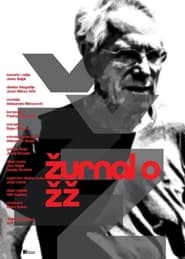 Road movie documentary through half a...
Road movie documentary through half a...ŽŽŽ: Journal About Želimir Žilnik 2021
Road movie documentary through half a century of filmography by Želimir Žilnik. But also a journey through the history of Yugoslavia, a country that no longer exists. With the specific style of docudrama that he built over the years, Zilnik managed to stay engaged and brave, but above all free, by making low-budget films for decades. We follow the efforts of his team to finish the film "Freedom or Comics", which was seized by censorship 50 years ago, and which was recently accidentally found. The story of an uninterrupted struggle for disenfranchised social and minority groups who are constantly the main heroes of Žilnik's films.
 A global portrait documenting the years...
A global portrait documenting the years...Cinetracts '20 2020
A global portrait documenting the year's events, Cinetracts '20 features the work of an international lineup of 20 filmmakers. Capturing the zeitgeist in their own backyard, the artists' short films are the culmination of a year-long residency project.
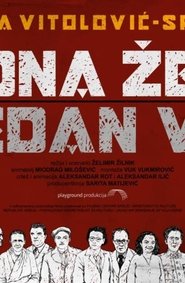 One Woman One Century is a...
One Woman One Century is a...One Woman – One Century 2011
One Woman, One Century is a documentary film based on statements, interviews, and reconstructions of real-life events. The life story of Dragica Srzentić casts light on a number of events and people relevant to Yugoslav history before and after the Second World War. The film’s look at the century-long life of this woman-hero provides insight into the rarely mentioned segments of the ex-Yugoslav intellectual and ideological maze that traverses all the states in which this Istrian-born woman lived (Austria-Hungary, Kingdom of Italy, Kingdom of Serbs, Croats and Slovenes, NDH, FNRJ, SFRJ, Croatia, and Serbia).
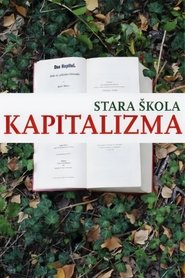 A mixture of documentary and fiction...
A mixture of documentary and fiction...The Old School of Capitalism 2009
A mixture of documentary and fiction examines the new god of Capitalism offered to the Serbs with the ending of state socialism. We look at a number of strikes in Belgrade during the late 2000s and these introduce us to several characters playing themselves. Employees dressed in American football helmets and pads square up with employers' heavies in their bullet-proof vests, resulting in explosive situations. A visit from the Russian tycoon's representative and vice president Joe Biden's arrival further complicates the proceedings.
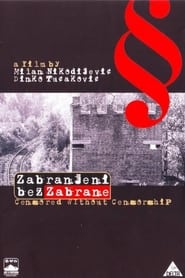 Through the conversation with Yugoslav film...
Through the conversation with Yugoslav film...Censored without Censorship 2007
Through the conversation with Yugoslav film authors and excerpts from their films, this documentary film tells a story of a film phenomenon and censorship, and its focus is, in fact, a painful epoch of Yugoslav film called “a Black Wave”, which was the most important and artistically strongest period of Yugoslav film industry, created in the sixties and buried in the early seventies by means of ideological and political decisions. The film tells a great “thriller” story of the ideological madness which characterised the totalitarian psychology having left multiple consequences felt up to our very days. It stresses similarities between totalitarian regimes defending their taboos on the example of the persecution of the most important Yugoslav film authors. Those film authors have, however, made world careers and inspired many later authors. The film is the beginning of a debt pay-off to the most significant Yugoslav film authors.
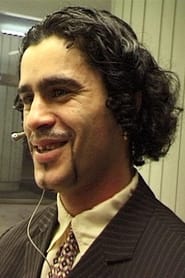 After his participation in filming of...
After his participation in filming of...Kenedi, Lost and Found 2005
After his participation in filming of “Kenedi Goes Back Home," Kenedi Hasani decided to illegally go to EU countries where his father, mother, brothers and sisters still are. The documentary recounts Kenedi's experience of his two-year refugee status.
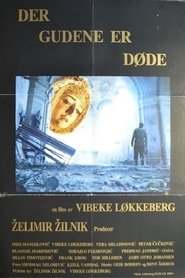 A Norwegian TVworker tries to prevent...
A Norwegian TVworker tries to prevent...Where Gods Are Dead 1993
A Norwegian TV-worker tries to prevent her son, which she has with her former husband, a Serb now living in Jugoslavia, to become a soldier in the starting civil war.
 In Vukovar during the Croatian War...
In Vukovar during the Croatian War...Silo Danube, Vukovar 1993
In Vukovar, during the Croatian War of Independence, after the devastation of the town, hundreds of tons of wheat have leaked out of a destroyed grain elevator. Thousands of ravens descend upon the wheat. Silo Danube, Vukovar was the last film the director shot on 35mm.
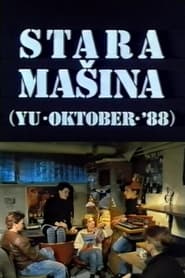 The aged rocker Igor works as...
The aged rocker Igor works as...Oldtimer 1989
The aged rocker Igor works as a journalist and DJ at the "Radio Student" in Ljubljana. He notices that the janitor Miha works for the police, tapping the walls and observing the journalists who are critical of the regime. After a clash with his editor, Igor decides to leave for Greece by his old bike DKW from 1938, via Bosnia and Serbia. Young Rahela joins him on the trip. Traveling through Yugoslavia, Igor becomes involved in unexpected turmoil: Milosevic's "antibureaucratic revolution" starts in Serbia and Vojvodina.
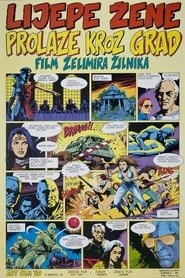 Belgrade in 2041 is a deserted city...
Belgrade in 2041 is a deserted city...Pretty Women Walking Through the City 1986
Belgrade in 2041 is a deserted city that looks like a dump yard. A few old men try to bring up a group of young girls in the old, traditional way of their Yugoslav ancestors.
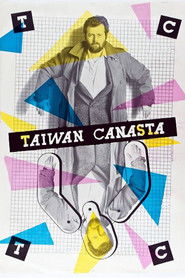 A frustrated and unemployed architect experiences...
A frustrated and unemployed architect experiences...Taiwan Canasta 1985
A frustrated and unemployed architect experiences flashbacks of his youth and 1968 protests while the life passes by. Unable to adapt and to accept the reality, he’s constantly getting into conflicts with the people around him.
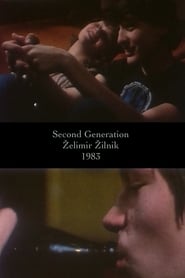 A teenager arrives from Germany to...
A teenager arrives from Germany to...Second Generation 1983
A teenager arrives from Germany to his grandparents in Novi Sad. He can't adjust to Yugoslavian schools, system or slow way of life, so he asks his folks to go back, but his parents insist on him staying. What now?
 Vera and Erzika have worked at...
Vera and Erzika have worked at...Vera and Erzika 1981
Vera and Erzika have worked at Trudbenik textile factory in Pancevo since they were 13. Now that they are almost retired they face numerous problems and misunderstandings. The film portrays emotional states of the heroines, their families, relationships with their colleagues, a spectrum of moods and thoughts of people who have come to the end of their working age.
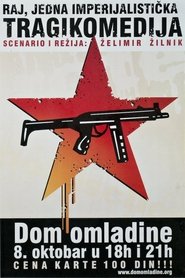 A multinational company owned by Mrs...
A multinational company owned by Mrs...Paradise. An Imperialist Tragicomedy 1976
A multinational company owned by Mrs Judit Angst is facing financial difficulties: she decides to hire a group of young anarchists to fake her "kidnapping". After a couple of weeks spent in confinement she will be able to justify the downfall of her company before the people and at the same time to gain the status of the opponent to the destruction and chaos.
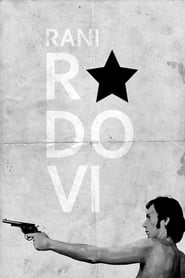 Inspired by Karl Marxs Das Kapital...
Inspired by Karl Marxs Das Kapital...Early Works 1971
Inspired by Karl Marx's "Das Kapital", three men and a girl named Jugoslava decide to wake up the conscience within the working class and peasants. Faced with the primitivism and a lack of morale, their revolution fails and the girl is the one to be sacrificed as a witness of their unsuccessful attempt.
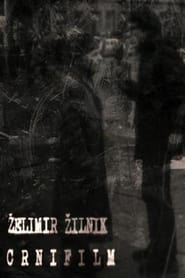 Director invites six homeless men to...
Director invites six homeless men to...Black Film 1971
Director invites six homeless men to his flat for a few days (surprising his wife). He asks officials and people on the street if someone can help them, this being SFRJ, a state officially without those left on their own.
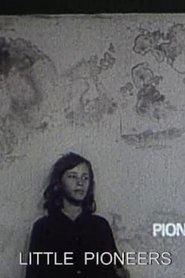 In SFRJ the state officially takes...
In SFRJ the state officially takes...Little Pioneers 1968
In SFRJ, the state officially takes care of all it's citizens. Every child is a good little pioneer. However, in reality no one (especially not the state) takes care of Roma and many other poor kids leaving them to poverty and the streets.
